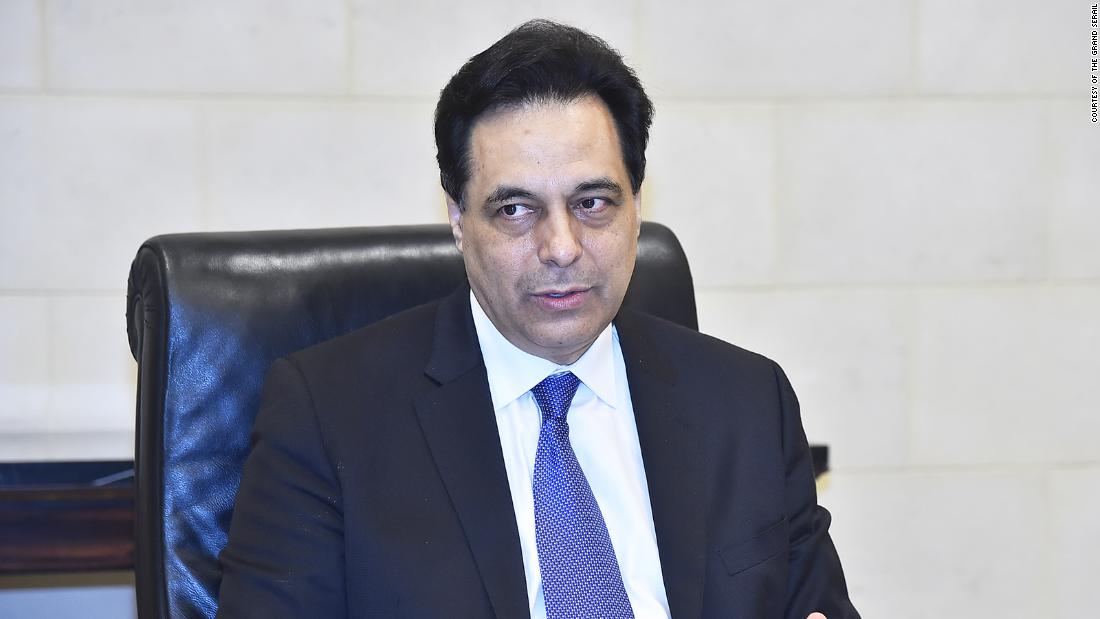Documents sent to the ministries as part of the investigation make it clear how dangerous ammonium nitrate can be and warn that “setting it on fire will cause a huge explosion and the result will be almost complete destruction of the port”.
CNN saw some of the documents included in a file sent to the Ministry of Public Works.
Public Works Minister Michel Najjar revised the documents at the end of August 3 and instructed ministry officials to follow up on the matter, according to the interim prime minister’s office. A stamp on documents received by the ministry was dated August 4, 2020 – the same day that the port of Beirut was destroyed when the chemical detonated.
CNN asked for Najjar’s comment and received no response.
At least 204 people died and thousands were injured in the explosion that hit the Lebanese capital. The explosion, which left an orange mushroom cloud rising over the city, caused major damage to the central and eastern districts of Beirut, displacing some 300,000 people from their homes.
More than four months later, what triggered the detonation of the material remains unclear, but government officials said they did not rule out sabotage.
“Everything that is happening is suspect,” Diab told CNN. “There is something that is inexplicable, the timing of it, what is happening.”
He denies the accusation and says he was pointed out, despite the fact that the explosive material was stored in the port for about six years before he took office.
“You must ask the questions: who brought the ship? Who owns it? Who paid for it? Who was silent about it for seven years?” Diab said.
Since ammonium nitrate arrived in Beirut, Lebanon has had four prime ministers, including the current Prime Minister appointed Saad Hariri, who denounced Diab’s charge.
Diab – who had previously filed a voluntary statement – declined to be questioned by the judge who conducted the investigation, claiming that it lacks a constitutional foundation.
The investigation was suspended after two of the former ministers facing charges charged that the judge be removed from the case.
The documents sent to the Ministry of Public Works before the explosion raised the possibility that the explosive material could be stolen; they warn of a broken door in the warehouse where the deadly material was stored and reveal that security there was scarce.
A Lebanese intelligence officer told CNN that 1,300 tonnes of ammonium nitrate disappeared from the warehouse before the explosion.
Diab’s government, which will be replaced when a new cabinet is formed, has repeatedly acknowledged receiving early warnings about the dangers of storing explosive material in the port.
Previous governments have also been notified of the deposit, but no one has addressed the issue.
‘No regrets’
Diab has repeatedly accused Lebanon’s ruling elite of “besieging” his government and suspending his plans to carry out a series of economic and political reforms.
He came to power in January 2020, months after a popular uprising engulfed the country and when the country in crisis was approaching a financial collapse.
A technocrat and professor at the American University of Beirut, Diab led a largely technocratic government that was started by a parliamentary majority supported by Hezbollah.
But his management caused the country’s money to plummet, the coronavirus pandemic to consolidate, poverty levels to skyrocket and the port of Beirut to be destroyed.
Diab says his government “was an opportunity for Lebanon to recover some of its economic, social and financial losses”.
“With the support of political parties, with the support of the (countries) of the Gulf (Arabs), with the support of Europeans and Americans, we would have made a big difference and we were not provoking anyone,” he said.
“In a country like Lebanon … you need consensus and also the support of the international community and the Gulf. None of this has been made public.”
